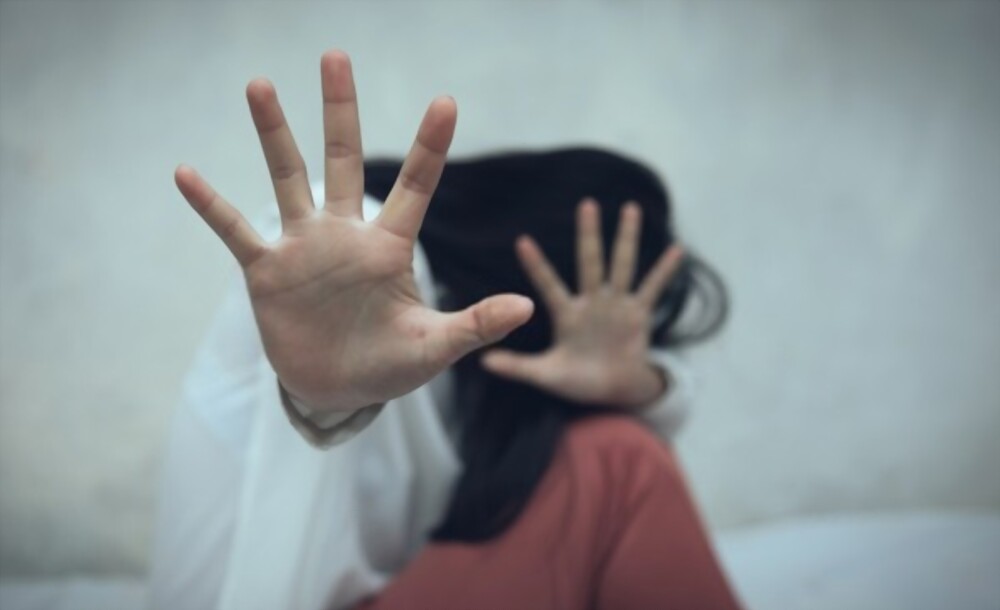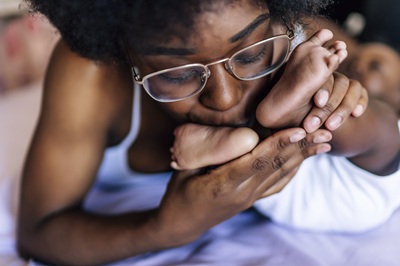Exploring the Hidden Trauma of Marital Rape
“I feel sorry for myself, I cannot complain and I don’t have a case because there isn’t a single law to protect me.”
Those were the words of Nada Adel, an Egyptian designer who, in June 2021, accused her ex-husband, a famous Egyptian YouTuber, on an Instagram post of raping her while they were married. Her allegations sparked a huge debate about the need for a strong, clear law to protect women from this violent action in Egyptian society over social media, talk shows, and other media forms.
Due to the widespread perception that sex is a marital right, marital rape has been a substantial public and reproductive health concern since the 1970s, which has mostly gone undocumented, understudied, and undetected.
What is Marital Rape?
Marital rape refers to sexual practices carried out by a wife's husband either against her will or without her consent. In order to make the woman worry that physical force would be used if she resists, he may employ physical force, threats of physical force against her or another person, or implied danger based on earlier assaults.
The primary component of marital rape—which need not be violent—is the absence of consent. Marital rape is regarded as a type of sexual abuse and domestic violence. Intimate partner or husband sexual assault is frequently viewed as less serious than rape by a strange person.
Different definitions and social theories view marital rape as an extreme type of sex-role socialization because of ideas like "wifely duty," which is the wife's responsibility to satisfy her husband sexually.
Let’s take a quick trip on how the word marital rape came they being.
The History of Marital Rape
Sir William Hale, an English chief justice in the 17th century (1), laid the foundation for the marital rape exception when he declared that married women cannot be raped and that "the husband cannot be guilty of a rape committed by himself upon his lawful wife, for by their mutual matrimonial consent and contract the wife hath given up herself in this kind unto her husband, which she cannot retract."
This adage was adopted by the American legal system and passed across to the English colonies in North America. Along with Hale's statement, English jurist, judge, and politician Sir William Blackstone made the "Unities Theory-1765," according to which "man and wife become one entity when married, and the legal existence of the wife is suspended during marriage."
Blackstone also considered rape "a property crime committed against another man," confirming that marital rape was impossible because "a husband could not steal his own property or commit a crime against himself."
It wasn't until the Women's Movement of the 1970s, which raised the issue of marital rape as a serious problem and pushed for changes to the legal system, when American writer and sociologist Richard James Gelles published the first peer-reviewed paper about marital rape under the title: "Power, Sex, and Violence: The Case of Marital Rape." In 1993, marital rape became a crime nationwide due to legislative changes. And as a result, about 150 nations have made marital rape a crime as of 2019.
However, most low- and middle-income nations in Asia and Africa haven't made medical rape a crime. They are still bound by patriarchal ideas and social norms supporting gender-based violence.
“My husband raped me daily. He forced himself on me every single day, even on the days I bled. He did not spare me all through the pregnancy and even till my child's last day of delivery. I want no woman to lose time to speak up against such an atrocity (2).
Speak out early so you do not continue suffering as I did. I was scared of him all along.” (A woman who didn’t reveal her identity on an Indian TV program).
The Categories of Marital Rape
Researchers from Boston University have identified two categories of marital rape:
Non-Physical Sexual Coercion
This is very critical since numerous studies have shown that non-physical sexual coercion affects more women than forced or threatening intercourse does. "Wifely duty" is invoked by social coercion. Even though the wife considers the behavior offensive, her natural duty is to please her husband.
Despite the sexual act being unwelcome, women claimed it was expected because their husbands had spent money on them.
Threatened or Forced Sex
Threatened or forced sex by itself can be classified as:
- Battering rape: occurs more frequently than any other type of marital rape. Battering rapes commonly occur in marriages with abuse on both a physical and verbal level.
- Force-only rape: the second most common type of marital rape. Constant conflicts regarding sexual behaviors were frequent in marriages with force-only rapes. There was barely little violence in these marriages. Marital rapists only used as much physical force as was necessary to accomplish their intended sexual deeds.
- Obsessive rape: This represents just 6% of marital rapes, making it the least frequent type of marital rape—odd sexual behaviors, including bondage and pornography, accompanied by obsessive rape marriages.
What are the Rates of Marital Rape?
Estimating the prevalence of marital rape is challenging because victims may be reluctant to come forward because they feel they have the "wifely duty" of satisfying their husbands. Due to feelings of helplessness, guilt, humiliation, or fear of other people's reactions—such as being blamed or not believed—as well as potential husband revenge, many women do not reveal their experience with marital rape.
As long as sexist assumptions about women and sex—such as the notion that women love forced sex, that they lie when they refuse sex while desiring it, and that wives must have sex—remain prevalent in the culture, people might not view it as a significant issue.
Such stereotypes influence men into thinking that wife's consent should be neglected and confuse women into thinking that they must have given the incorrect signals, blame themselves, and think poorly of themselves for not enjoying sexual relations. According to a recent analytical paper from Pakistan, the media has been praising (normalizing) marital rape in cases when a woman repeatedly says no while being coerced by a man.
Women are raped without being aware that they are being raped because men and women absorb this message and recreate it with their spouses.
Victims of marital rape continue to stay married for several reasons, including fear of further abuse from other society members, loss of financial stability, diminished self-worth, and unrealistic belief that their husbands’ attitudes may change.
In the US, 10 to 14 percent of married women experience marital rape (3).
In the 2014 Egyptian Demographic Health Survey, 4% of the women interviewed said their husbands pressured them to engage in sexual activity they didn't want to (5). These figures have probably been underreported.
One in three women is "subjected to physical or sexual assault by an intimate partner or sexual violence by a non-partner," according to the World Health Organization (6).
Causes of Marital Rape
For the last 50 years, researchers have been studying the causes of marital rape. Several studies have shown that the following circumstances increase the risk of marital rape:
- Physical or sexual abuse that took place before marriage ever began
- Previous intimate partner abuse, either physical or emotional. Nearly half of those who experienced physical violence before have also experienced marital rape
- Status inequalities between the married couple, including differences in income and educational backgrounds
- A gap in age of at least ten years
- Disagreements within the relationship over the frequency and types of sexual activities they have
- Women who a family member sexually abused them as children were more likely to be raped during the marriage
- Domestic violence in the offender's family of origin
- The offender's alcoholism and drug addiction
- Victims are often underemployed, young, and poorly educated.
Understanding the Impact on Survivors
The consequences of marital rape are undeniable. It has severe, deteriorating physical and psychological impacts on the victims and society as a whole.
Psychological Effects
- Depression
- Posttraumatic Stress Disorder (PTSD)
- More negative emotions towards males and sex
- Worse self-esteem and body image, and higher levels of self-blame
- Suicide attempts were more prevalent when marital rape was more frequent.
Physical Effects
- Black eyes
- Broken bones and soft-tissue injuries
- Laceration and bruises
- Painful pelvis and perineum
- Miscarriages
- Urinary infections and urinary incontinence
- Rectal bleeding
- Unwanted pregnancies.
According to several studies, women who have survived rape are more likely to develop cervical cancer and cervical dysplasia. Compared to women who have not suffered abuse, women who have undergone sexual, physical, or emotional abuse within marriage are 1.5-3.0 times more likely to test HIV positive and 2-4 times more likely to report another STI (WHO, 2015).
Many studies show that an intimate partner's use of coercion to force sex is a significant risk factor for homicide.
The Situation During COVID-19
Intimate partner violence (IPV) increased significantly during the COVID-19 pandemic, primarily due to prolonged lockdowns, homes entrapment, distorted family dynamics, and limited access to healthcare and social services- according to the global report of domestic abuse and intimate partner violence across countries.
A global phenomenon that serves as a wake-up call for feminism and the world towards women and community development as violence, harassment, oppression, and trauma from physical, sexual, economic, and psychological abuse has increased, representing how much loss of autonomy, misery, and vulnerability women encountered during the COVID-19 pandemic (7).
Strategies for Prevention and Recommendations
Criminalization of the Act
Several study findings and the recommendations of WHO and UNICEF indicate that governments must take immediate action to address the law reform related to marital rape and inequities in marital laws. While stopping gender-based violence is crucial, criminalization must be a solution component.
It is necessary to emphasize that culture and religion are neither a legitimate defense nor an excuse for marital rape, and women who survive it need legal protection. It's important to denote that continuity of an abusive and violent marriage is not "holy" as well.
Nothing in the marital contract implies that it is acceptable to coerce sexual contact and violate the freedom of the other spouse.
Sexual Education
On another aspect, adolescents must receive comprehensive sexual education about consent and healthy sexual relationships. Additionally, psycho-education (integrating social-public health systems) and mental health awareness (information-education-communication) should be spread through media and community outreach. Talking about gender roles and how misogynistic viewpoints contributes to increasing violence against women.
The Indiana Coalition of Sexual Assault in the US serves as an excellent demonstration of the following strategies and recommendations for providing care and support to victims of marital rape:
For the victim
- Friends and family can be a great source of comfort and support
- Shelters can provide a temporary safe place to stay. Shelter staff also may help by pointing out options
- Hotlines offer immediate support and referrals to social service agencies
- Legal aid services can offer low-cost or free legal information or assistance
- Support groups can be helpful, allowing victims to talk with other people dealing with partner abuse.
In the community
- Express your support for the strong enforcement of current laws and new legislation to combat domestic and sexual violence.
- Support educational and prevention programs on local, state, and national levels.
At home
- Set an example for your children
- Teach them with your actions that violence and abuse are not part of family life.
- Get help if you and your partner can’t resolve problems. It isn’t always possible to solve your differences on your own
- Seeking help is a sign of strength, not weakness. If necessary, get help on your own
- Resolve conflicts by discussing
- Talking isn’t always easy, but the results are worth the effort.
By: M.D. Fatma Mohammed Tawfik (Family planning and Reproductive health Physician)





Comments (0)